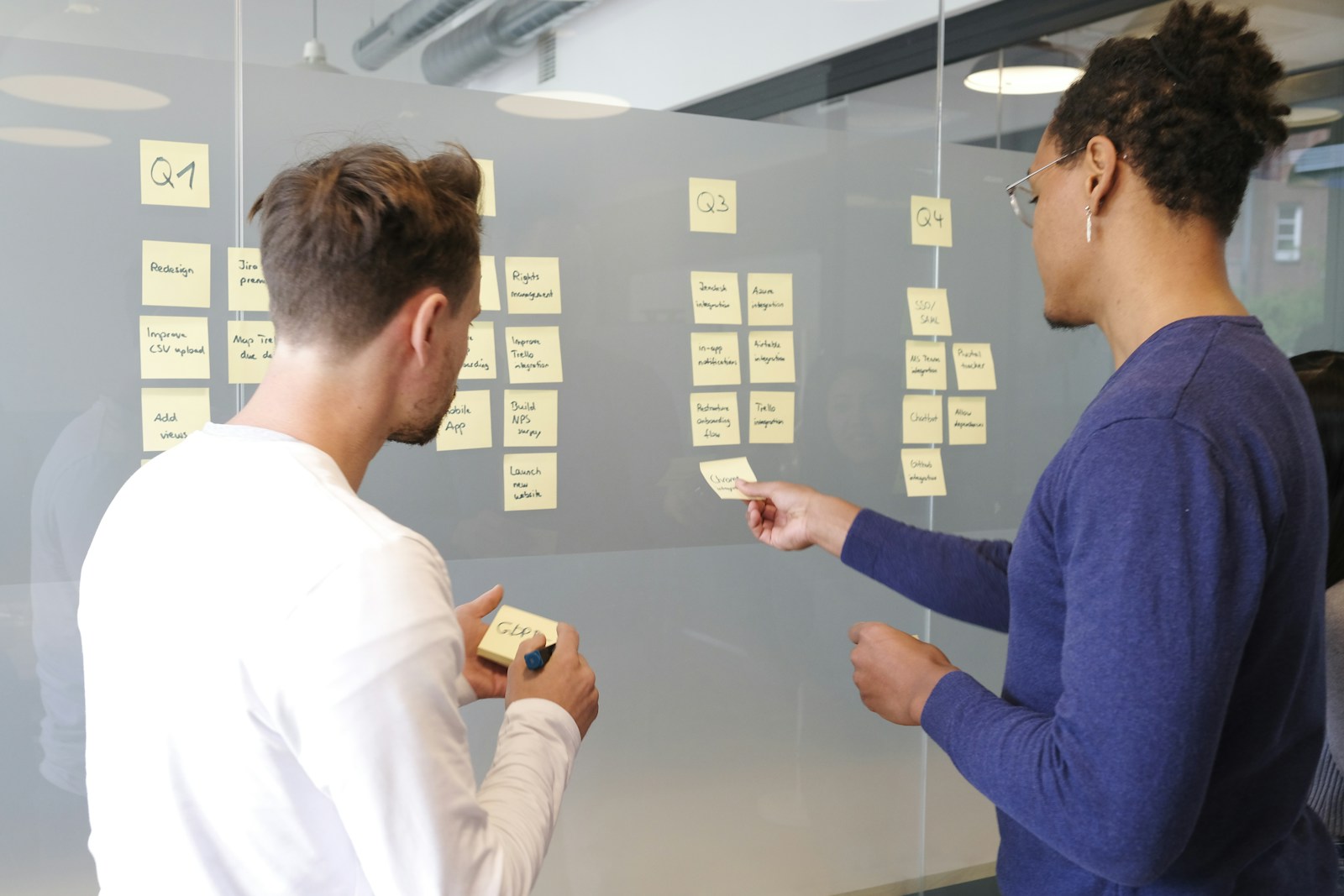Entrepreneurship is often described as a marathon, not a sprint, but the pace can still feel relentless. A staggering 72% of entrepreneurs struggle with mental health issues, including stress and burnout, according to a study by the University of California, San Francisco (Freeman et al., 2015). Entrepreneurs are expected to wear many hats—leader, visionary, manager, and problem-solver—all while remaining innovative and focused in a fast-paced, competitive market.
But amidst the pressure to innovate and succeed, many entrepreneurs experience cognitive overload, emotional fatigue, and burnout. These challenges are not just mental barriers; they have the potential to derail an entire business. This is why mindfulness meditation is increasingly becoming a valuable tool for entrepreneurs. By dedicating time to mindfulness, business leaders can manage stress more effectively, enhance focus, and make more thoughtful decisions.
In this post, we’ll explore the benefits of mindfulness meditation for entrepreneurs, provide practical exercises to incorporate into your routine, and share stories of successful entrepreneurs who have embraced mindfulness to lead their businesses with greater clarity and calm.
What is Mindfulness Meditation?
Mindfulness meditation is the practice of focusing your attention on the present moment, observing your thoughts, feelings, and sensations without judgment. It is rooted in ancient traditions, particularly Buddhist teachings, but has become widely adopted in the West as a secular practice backed by science. The essence of mindfulness meditation is awareness—being fully present in the here and now, rather than getting caught up in the past or future.
This practice can range from focused breathing and body scans to mindful walking or even eating. The goal is not to clear the mind completely but rather to cultivate a deep awareness of what is happening in the moment. For entrepreneurs, this ability to observe thoughts without immediately reacting to them can be particularly powerful in reducing stress and improving decision-making.
Research from Harvard Medical School shows that mindfulness meditation can physically change the brain by increasing the density of gray matter in areas associated with memory, emotional regulation, and decision-making (Lazar et al., 2005). This means that regular mindfulness practice can help entrepreneurs better manage their emotional responses to stress and maintain focus in high-pressure situations.
Actionable Takeaway: Start with a simple breathing meditation. Find a quiet space, sit comfortably, and focus your attention on your breath. Inhale deeply for a count of four, hold for four, and exhale for four. Repeat this for five to ten minutes. If your mind wanders, gently bring it back to the breath. This practice can help calm your mind before diving into a busy day.
Why Entrepreneurs Should Practice Mindfulness
Entrepreneurs face a unique set of challenges: unpredictable markets, tight deadlines, and the constant pressure to stay ahead of the competition. This often leads to stress, anxiety, and burnout, which can cloud judgment and hinder creativity. Mindfulness meditation offers a powerful antidote to these challenges by helping entrepreneurs manage stress more effectively, increase their focus, and approach their business with greater clarity.
Reducing Stress:
Mindfulness meditation has been shown to reduce cortisol levels, the hormone responsible for stress. A study published in Health Psychology found that individuals who practiced mindfulness experienced lower levels of stress and better emotional regulation (Creswell et al., 2014). For entrepreneurs who often find themselves overwhelmed by deadlines and decisions, mindfulness can provide a much-needed mental reset.
Improving Focus:
Entrepreneurs are often juggling multiple tasks at once—meeting with investors, managing teams, developing products, and marketing. This constant multitasking can lead to cognitive overload and reduced productivity. Mindfulness meditation helps entrepreneurs sharpen their focus by training the brain to concentrate on one task at a time. Studies show that even brief mindfulness sessions can improve attention span and working memory (Zeidan et al., 2010). This can lead to more effective decision-making and increased productivity.
Example: Steve Jobs, co-founder of Apple, was known for his dedication to mindfulness meditation. He credited his daily meditation practice with enhancing his ability to think clearly and creatively. In his biography, Jobs shared that mindfulness allowed him to approach problems with a calm and focused mind, which contributed to his success in leading one of the most innovative companies in the world (Isaacson, 2011).
Enhancing Creativity:
Creativity is the lifeblood of entrepreneurship, but it can be difficult to tap into when the mind is cluttered with stress and distractions. Mindfulness meditation helps clear mental clutter, creating space for new ideas and creative solutions to emerge. Research published in Frontiers in Psychology found that mindfulness meditation can enhance divergent thinking, a key component of creativity (Colzato et al., 2012). This is especially important for entrepreneurs who rely on innovation to differentiate their products or services in a competitive market.
Example: Arianna Huffington, founder of The Huffington Post, is a vocal advocate of mindfulness and meditation. After experiencing burnout herself, Huffington began incorporating mindfulness into her daily routine. She credits mindfulness with helping her maintain balance and prevent burnout while growing her media empire (Huffington, 2014).
Actionable Takeaway: Schedule a five-minute mindfulness break in the middle of your workday. Find a quiet space, close your eyes, and focus on your breath or the sensations in your body. This simple exercise can help reset your stress levels and improve your focus for the remainder of the day.
Simple Mindfulness Practices to Start Today
Integrating mindfulness into your daily routine doesn’t require long retreats or hours of meditation. Even small, consistent practices can have a significant impact on your mental health and productivity. Here are some simple mindfulness exercises that you can start incorporating into your entrepreneurial routine today:
Mindful Mornings:
Start your day with a short meditation to set the tone for a mindful, focused day. This could be as simple as five minutes of deep breathing or using a guided meditation app like Headspace or Calm. The key is to take a few moments to centre yourself before diving into your tasks.
Actionable Takeaway: Try a morning mindfulness routine: Upon waking, spend five minutes focusing on your breath and setting an intention for the day. You might say to yourself, “Today, I will approach my tasks with calm and focus.” This can help you begin your day with clarity and purpose.
Mindful Breaks:
Throughout the day, take short breaks to practice mindfulness. This could be a brief body scan—checking in with how different parts of your body feel—or simply taking a few deep breaths to refocus. These mindful breaks can prevent burnout by allowing you to step away from the stress of work and reset your mind.
Actionable Takeaway: Set a timer to take a one-minute mindful break every hour. During this break, close your eyes, take a few deep breaths, and simply notice how your body feels. These small moments of mindfulness can make a big difference in your overall stress levels and productivity.
Mindful Eating:
Entrepreneurs are often so busy that they eat on the go or while working. This can lead to overeating or feeling disconnected from your body. Mindful eating involves slowing down and paying attention to the experience of eating—the taste, texture, and smell of your food. This practice can help you enjoy your meals more and prevent stress-induced overeating.
Actionable Takeaway: Try a mindful eating exercise during your next meal. Focus on the colours, smells, and textures of your food before taking a bite. Chew slowly, savouring the flavours. Rest your knife and fork between mouthfuls. Don’t have your fork loaded with the next mouthful. This practice can help you develop a healthier relationship with food and reduce stress.
Guided Meditation Apps:
If you’re new to mindfulness, guided meditation apps can be a great way to get started. Apps like Headspace, Calm, and Insight Timer offer short, guided meditations that are perfect for busy entrepreneurs. These apps also provide specific programs for stress, focus, and productivity, making them a convenient tool for improving your mindfulness practice.
Actionable Takeaway: Download a mindfulness app and commit to using it daily for at least five minutes. Start with a beginner’s program focused on reducing stress or improving focus. Over time, you may find that these small moments of mindfulness significantly improve your overall well-being and work performance.
Ready to take control of your entrepreneurial journey with mindfulness meditation? Share your experiences in the comments—have you tried mindfulness before, or are you considering starting? Try a simple mindfulness exercise today and come back to share how it impacted your focus and stress levels. For more on optimising your performance, check out our next post on ‘Top 10 Productivity Hacks for Entrepreneurs.’
Final Thoughts:
Mindfulness meditation offers a powerful antidote to the high-stress, fast-paced world of entrepreneurship. By incorporating mindfulness into your routine, you can reduce stress, enhance focus, and cultivate greater emotional resilience, allowing you to approach challenges with a clearer mind and a calmer demeanour. As a result, you'll not only improve your well-being but also make more thoughtful and strategic decisions that benefit your business. Start small, with just a few minutes each day, and watch as mindfulness transforms both your personal and professional life. How might your business change if you began each day with a moment of mindfulness?











0 Comments